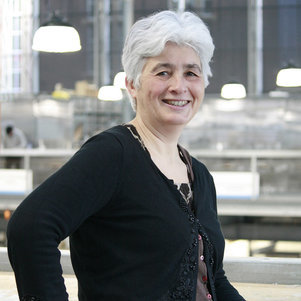TU Delft develops 'brains' for buildings
A large consortium led by TU Delft is going to provide ‘brains’ to buildings. The Dutch Ministry of Economic Affairs and Climate Policy has allocated 6.9 million euro to the Brains 4 Buildings project. The objective of the project is to contribute to the development of smart methods and algorithms that add operational intelligence to buildings, in order to make them as energy efficient and comfortable as possible. Professor and scientific coordinator Laure Itard: “Buildings’ energy systems have become so complex that their real time control cannot be achieved by traditional methods. We need much clever approaches using the potential of machine learning and artificial intelligence.”
Even in the most modern utility buildings, ten to thirty percent of energy is wasted due to malfunctioning installations and unexpected user behaviour. In addition, the quality of the indoor environment is inadequate and operational costs are high. ‘Brains’, fed by data from smart meters, building management systems and the Internet of Things will be capable to process large amounts of data and to make weighted decisions how to maximize energy efficiency and CO2-reduction, increase comfort, respond flexibly to user behaviour and local renewable energy supply and demand, and save on maintenance costs. The technique provides a great opportunity but is still underdeveloped and barely implemented at this moment. The current models and algorithms are not yet fast and efficient enough to make buildings really 'smarter', and the implementation is a laborious and time-consuming exercise.
Living labs
Given the complexity of implementation, the development of brains for buildings requires a multidisciplinary approach and cooperation between various partners. The consortium therefore covers the whole value chain and includes building users, managers and owners, installation and maintenance companies, interface & product suppliers and knowledge institutions. Laure Itard: “We will use an open source approach, so that we can develop scalable and integrated solutions and system innovation in the whole installation sector.”
The B4B project is organized around six living labs, which consist of test sites in utility buildings that are used as a first validation step to prototype, test and evaluate products and services in a protected environment. The open-source results will then be validated by a number of consortium-partners, and analysed for upscaling and integration possibilities in use cases. Itard: “With this project we hope to give an important push to the development of affordable smart software that is ready for broad market uptake”.
The MOOI subsidy scheme
Brains for buildings is sponsored by the subsidy scheme for Mission-based Research, Development and Innovation (“MOOI” in Dutch). The goal of this ministerial scheme is to accelerate and implement climate related developments. Solutions must lead to products and services that will be operational by 2030.
More information
Project website
Project leader: Mirjam Harmelink, m.g.m.harmelink@tudelft.nl
Press officer: Dimmy van Ruiten, d.m.vanruiten@tudelft.nl

